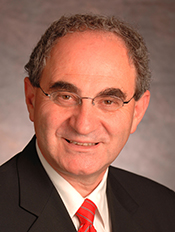The Institute of Physics' most prestigious accolade, the Isaac Newton Medal, has been awarded to Professor Eli Yablonovitch for his visionary and foundational contributions to photonic nanostructures.

"I am deeply honoured, and humbled by the great distinction of the previous winners," said Prof. Yablonovitch of the decision to award the medal to him.
When asked which part of his work delighted him the most, he said "I am most proud of catching physical insights that had been overlooked by the field, and were long overdue. It is wonderful to weave fundamental physics together with applications. Truly useful applied work must rely upon new fundamental physical understanding. I am happy to see some of those innovations in very widespread technical use."
Photonic crystals behave as semiconductors for light as they are periodic optical nanostructures. They are called 'crystals' due to their periodicity and 'photonic' as they act on light.
Humanity needs a replacement for the transistor in information processing that can be orders of magnitude more energy efficient. Science is on the verge of recreating the entire energy system, employing ever-cheaper photovoltaic panels. This will eventually produce hydrocarbon fuels that will be competitive with fuels extracted from the ground.
Professor Eli Yablonovitch - University of California, Berkeley
These crystals are characterised by a band gap which allows only certain wavelengths of light to pass through, thus providng excellent control over the behaviour of light. This phenomenon can be used to make light to travel in a specified direction. Band gaps can be found in nature and play a key role in the iridescence of certain butterfly wings and the camouflage skills of chameleons.
Leading Scientists Discuss Converging Technologies: Eli Yablonovitch (UC-Berkeley)
According to the citation, "Photonic crystals have caused a true paradigm shift in photonics, based on their ability to control the flow of light to an extent that was hitherto unthinkable. As a result, photonic crystals are now being used in research areas as diverse as quantum computation, nanoscale imaging and sensing, photovoltaics, optical interconnects, and high performance light-emitting diodes."
Prof. Yablonovitch will give the Newton Lecture in London on 6th November 2015.